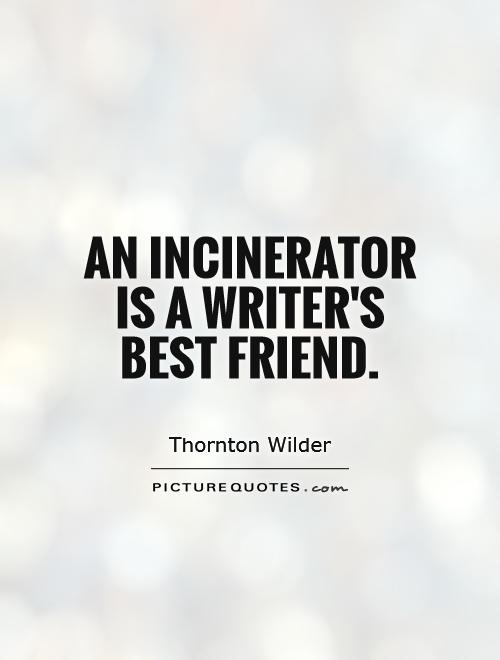An incinerator is a writer's best friend

An incinerator is a writer's best friend
Thornton Wilder, the renowned American playwright and novelist, once famously said, "An incinerator is a writer's best friend." This seemingly odd statement holds a deeper meaning when examined in the context of Wilder's own writing process and philosophy.Wilder was known for his meticulous attention to detail and his dedication to crafting stories that were both profound and timeless. He believed in the power of revision and editing, often spending countless hours refining his work until it was just right. For Wilder, the incinerator symbolized the act of letting go of what no longer served the story, of burning away the excess and leaving only the essential.
In a practical sense, an incinerator can be a writer's best friend in the sense that it allows for the physical act of discarding drafts, notes, and other materials that are no longer needed. Wilder understood the importance of decluttering one's workspace and mind in order to make room for new ideas and fresh perspectives. By letting go of the old, writers can make space for the new and the unexpected.
But perhaps more importantly, Wilder's statement speaks to the emotional and psychological aspect of writing. The act of writing can be a deeply personal and sometimes painful process, as writers grapple with their own doubts, fears, and insecurities. The incinerator can serve as a metaphorical tool for letting go of these negative emotions, for burning away the self-doubt and criticism that can hinder creativity.












 Friendship Quotes
Friendship Quotes Love Quotes
Love Quotes Life Quotes
Life Quotes Funny Quotes
Funny Quotes Motivational Quotes
Motivational Quotes Inspirational Quotes
Inspirational Quotes